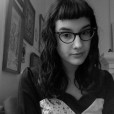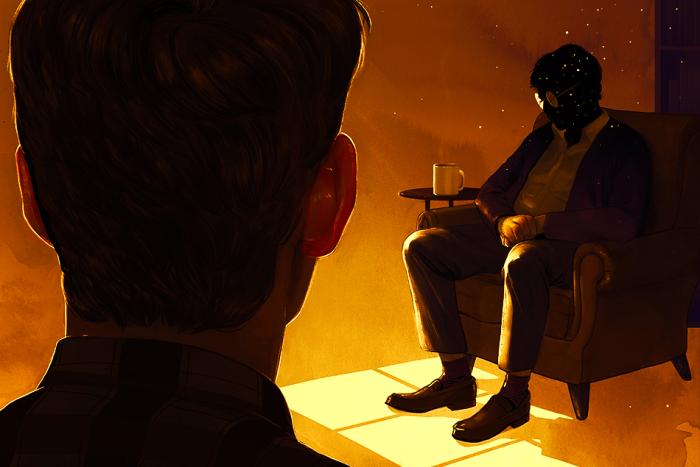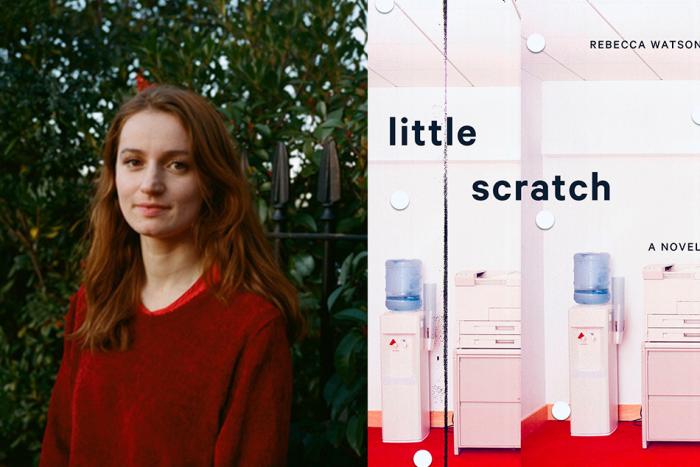When pressed via Instagram poll to describe what an America with defunded police would look like, congresswoman Alexandria Ocasio-Cortez responded, “It looks like a suburb.” Initially, the manicured montage of a bland, probably white family living in a spacious house behind a white picket fence with 2.5 kids and a station wagon in the driveway seems like an odd characterization for a non-carceral state. But on further examination, the comparison makes sense. In this imaginary suburb, crime is relatively nonexistent because the community’s affluence is funneled towards resources and social services such as education, libraries, and public pools, instead of the overpolicing of its citizens. Between Ocasio-Cortez’s reclamatory metaphor and Jason Diamond’s defense of the urban fringe, The Sprawl: Reconsidering the Weird American Suburbs (Coffee House Press), the suburbs are undergoing a bit of an image overhaul as of late.
From their inception post-WWII, the suburbs have formed the bedrock for a rich American mythology based on secrets and lies, normalcy and conformity. The first modern suburb, Levittown in Long Island, New York, was initially conceived of as a place where every young soldier returning home from the war could afford to own a home. The result was a tract of 17,000 near-identical homes built on top of fields that once yielded potatoes and onions that fed the very soldiers they now housed. Yet part of the planner’s desire to create an idyllic residential paradise involved consciously excluding Black and brown people; even today, Levittown remains 88 percent white. Diamond acknowledges the suburb’s exclusionary history and argues they can be redeemed. To him, the suburbs are not “a great big boring monolith of conformity”; rather they’re like Anakin Skywalker, a “flawed, imperfect but ultimately good person.”
The Sprawl is part melancholic meditation on the meaning of the suburbs, part encyclopedic survey of the suburbs in pop culture references, and part futurist reimagining of the possibilities of suburbia. At its core, it’s both a paean to the place that formed Diamond and a wistful epitaph to where that childhood was discarded. But an underlying spirit of optimism prevails. If Diamond can overcome the trauma of his past, then perhaps there’s hope—a future that looks like a suburb might not be such a bad thing after all.
Isabel Slone: The book is heavily rooted in place, yet it’s arriving at a time when most people have been suffocating inside for months. Has shelter-in-place affected the way you perceive the suburbs at all?
Jason Diamond: It’s been really strange to see this sudden wave of people start thinking about moving back to the suburbs. There’s this acceptance, on the part of a lot of people my age, that they’re going to move back to the suburbs because they can no longer afford to live in the city or they just feel it’s safer outside, virus-wise. I have mixed emotions about it because I’ve been researching the suburbs for so long, but I didn’t hope for something so tragic as a pandemic to come up and make the book seem timely…
You could almost argue that the entire theme of the book was mixed emotions. It’s clear you have a deep appreciation for the suburbs even though your experience growing up there wasn’t wholly positive. Did you feel like you were grappling with the idea of loving something you don’t really like?
One of my favourite quotes, and I’m paraphrasing it so I guess it isn’t actually one of my favourite quotes, but Aaron Cometbus said that the two most nostalgic types of people are old punks and Jews. I’m both an old punk and a Jew. I’m a nostalgic person who tries to take a critical approach to things. It’s like with anything you write, you have to be as honest and careful as possible. My childhood in the suburbs wasn’t the greatest, but I do appreciate the idea of the suburbs, so I’m not going to come at them with my knives out either.
I’m interested in your use of the term “reconsidering.” Why were you drawn to reconsidering the suburbs in the first place?
For me, early on, I was like, “The suburbs suck. I don’t want to be here.” Then I started getting a little older and found myself in the suburbs more often and became really interested in the things I had previously overlooked. When I wrote my first book, Searching for John Hughes, I found myself going back to the Chicagoland area I grew up in, and was really stunned by how beautiful it is and how much interesting stuff there is going on. I didn’t realize the Steppenwolf theatre, this famous American theatre company of the last 50 years, was founded in the suburb right next to mine. Then I started unwinding every little thing that I like and realized that 90 percent of it comes from the suburbs. Lou Reed might be associated with New York City, but he’s from Long Island, you know? Steve Albini moved from Montana to Evanston, Illinois. It’s the same thing with Danzig. I visited his hometown, Lodi, New Jersey, and was like, “This is where Danzig is from?” It wasn’t some weird, creepy bat cave; it was suburban New Jersey. I really just started reconsidering the suburbs for myself. I got to this point where I decided that nothing is 100 percent bad. It's really easy to think otherwise, but I just wanted to expand on what makes the suburbs good and what could make them better.
Do you think part of the desire to reconsider is getting older, slowing down? When you’re a teen, suburbs provide this context of something to rebel against. If teens have to move away to find their identity, are the suburbs where parents go to be themselves?
I think it's less that they’re trying to find themselves, and more that it's just easier to live there. I can’t speak to suburbs outside the US, but here, there’s definitely this idea that the suburbs are safer and easier to manage. You just get in your car, you don’t have to walk, or deal with any of the spontaneous happenings on the street you experience—for better or for worse—in a city. But it’s important to consider who this ease is built for. Suburbs have not been a friendly place since the get-go. Levittown in Long Island, the first modern American suburb, was built on a foundation of racial exclusion. Suburbs have a long history of excluding Black and brown people. Even my own family: My nana kept these letters she received from the country club saying, “Thank you for applying, but we don’t let your race into our club.” Anything built on a foundation of keeping people out isn’t going to be able to hide that forever. The suburban story is a very American story because we keep sweeping stuff under the rug and haven’t been able to reconcile with it yet. When I visited Celebration, Florida, a suburb originally owned by the Walt Disney Company, it felt like everyone who lived there was doing PR for the place. It’s a very weird, tight situation. For a place that promises space and happiness. It's usually the opposite.
Despite all the pop culture references devoted to them, I got the sense that suburbs actually aren’t that much more interesting than any other place. Are we wrong to imbue so much imagination and symbolism on them?
I don’t think that impulse is wrong, necessarily. You can take anything and mold it into a book, or an album. Geographically, the suburbs dominate so much of America that it's only natural they dominate much of the conversation. Not to get too off track, but I’ve always found Moby-Dick to be this fascinating book because it’s a about a whale, it’s about a guy chasing a whale, it’s about obsession, but at the heart of it, it's about America coming to grips with being this new, young country. So much of our art is concentrated on trying to make sense of this really bizarre country. I could point to so many different works of art and demonstrate how it explains America at a specific point and time. Basically, America is always in therapy and it's not getting much out of it. It needs to change its therapist, I think.
Damn. I didn’t grow up in the suburbs—I’m from a rural area—but sometimes I feel like I did because so much of my favourite music from my teen years was centred around the desire to escape them. That always makes me wonder, why does teen rage feel almost endemic to the suburbs?
I would never go out to the suburbs and be like, “Hey, 15-year-old jaded punk kid, you should really like your hometown a little bit more.” When you’re that age, you’re never going to like your hometown. Maybe if you grew up in New York City—I read the Beastie Boys Book and hearing them talking about growing up in NY, it sounds like it was a wonderland. When you’re a teen there’s so much pressure, and if you keep squeezing, that pressure is going to make them explode, either through creativity or through violence. I got lucky that I was more drawn to the creative side.
I remember the summer I turned 15, I had a friend whose dad passed away. He and his mom were away for a month to take care of family business and I remember, with his mom’s permission, my friends and I built a skate ramp in the back of his house. How did we learn to build a skate ramp? None of us were carpenters. My one friend just had this skateboard zine that had directions on how to build a ramp. We just kind of used what we had as cobbled it together. It took us maybe a month to build it. It made my friend’s entire life. We spent the whole summer hanging out skating on it. I wish I would have thought of that before I wrote this book because I would have gone back and reconstructed that entire summer.
That’s incredible. I was surprised to learn that Gen Z is apparently obsessed with suburban shopping malls. It got me thinking, now that kids grow up with the internet and are able to ease the sense of isolation by finding friends there, does that suburban ennui that feels like a feature not a bug of the suburbs now cease to exist?
I don’t think that will ever cease to exist. What has changed, I think, is the concept of regionalism. Growing up in the mid-’90s, I caught the last dying days of any sense of regionalism. Back in the ’60s, ’70s, ’80s, there were certain garage rock or hardcore scenes that sounded a little different—Chicago had the ska-punk scene, stuff like that. Now that we have the internet gluing everything together across the world, I don’t think that sense of regionalism will remain. I don’t think there will ever be another Dischord Records that only puts out DC bands. But I do think the ennui you speak of is always going to be there. If there’s anything I’ve learned from watching TikTok, or just paying attention to stuff I’ve seen on the internet, teens are more in touch with their emotions these days. But teens are always going to be sad. They’re going to have that kind of energy I am thankful I will never have to experience again unless I have my own kids.
Speaking of Dischord, some of the best punk rock records hail from suburbia. Why do you think that is? And what do you make of the criticism that punk’s suburban roots somehow invalidate it, as if privilege and punk rock don’t go together?
If we strip away the semantics, we can now safely say that Black Flag was a great American rock band. With every singer they had, they took the rage and anger they were feeling and distilled into something super brilliant. And they were 16- or 17-year-old kids at the time. It's fine to say punk rock comes from a place of privilege, but would people really prefer these kids to sit around on their butts and be boring? To conform and become like the people they didn’t like? I’m glad they didn’t become middle management. In a way, they were using their privilege in a positive way by saying, “Hey, I’m a middle-class white kid and I want to speak out against the things I see.” That’s what a lot of hardcore is. Politically, everything we’re seeing now, I feel pretty prepared for it because I grew up listening to ’80s hardcore.
Everyone is just discovering ACAB and I’m like, “You’ve never listened to MDC?”
They’re literally called Millions of Dead Cops. I had an MDC pin on my jacket when I was a kid. That’s why I’m not shocked by the current moment. Sure, everything sucks right now, but this has always been the way it is. Black Lives Matter is really galvanizing support and demonstrating how Black people are treated unfairly and white Americans are like, “This is a thing?” That to me is weird. But I’m glad early on I had people say to me, “Listen to Public Enemy. Read Howard Zinn.” There were maybe five people in my suburb that would have told me that and I’m really lucky that either I found them or they found me. I don’t know if I would have had that same luck if I’d grown up anywhere else.
There's a quote in the book that goes, “The sprawl has consumed so much of this country with its ugly houses, chain stores upon chain stores, forgotten shopping plazas, and endless stretches of road. But it wasn’t supposed to be this way, and in that fact I see a chance, an opportunity.” Opportunity for what?
Sustainability and community. I think these things are severely lacking in many suburban places. I don't like the idea of a place just being built and that's it. There's no nurturing or building that actually helps people that live in these places. We don't need more car dealerships or big box stores; we need libraries and gathering places, for when that sort of thing is acceptable again. We need natural grasses, not turf lawns. We need places to walk and cut our dependence on cars. If suburban places can embrace change like that, I think it would have a huge impact in countless ways, from environmental to quality of life.
Community seems like a crucial part of the equation that is currently lacking in suburbs. So how do we go about creating one?
There's a chapter in my book where I go to Avon, Connecticut, and talk to locals who organized against a developer. What fascinated me was the two of them had lived two houses down from each other for well over a decade and had never met their neighbors. The more people I talked to in suburban places, the more I found that was the case. So, the simple answer would be, "Talk to people more!" But obviously it needs to be more than that.
It's important to note that as the suburbs rose throughout the second half of the 20th century we saw a decline in our social structures, whether that be churches or PTA, we were disconnecting from other people long before we all had smartphones to blame for our lack of attention span. Now, I'm not saying church or the PTA is what's needed to cure what ails suburbia, but getting people together is. It would take a grassroots effort, finding ways to engage people in the suburbs, getting them out of their homes, going out and getting to know other people. How, exactly, we do that with all the things currently taking up our focus is hard to say, especially in the age of social distancing, but I think one of the big things we can do is start by looking backwards, to the ideas of planners like Victor Gruen, who designed the American mall to be something more like the kind of spaces he knew in Austria at the start of the 20th century. It would be nice if our government would start to realize how important the suburbs are to America and work to make them more sustainable, healthier places, but I don't have much faith that will happen anytime soon. We need to rethink the suburbs we already have and figure out how to make them more than just places.






